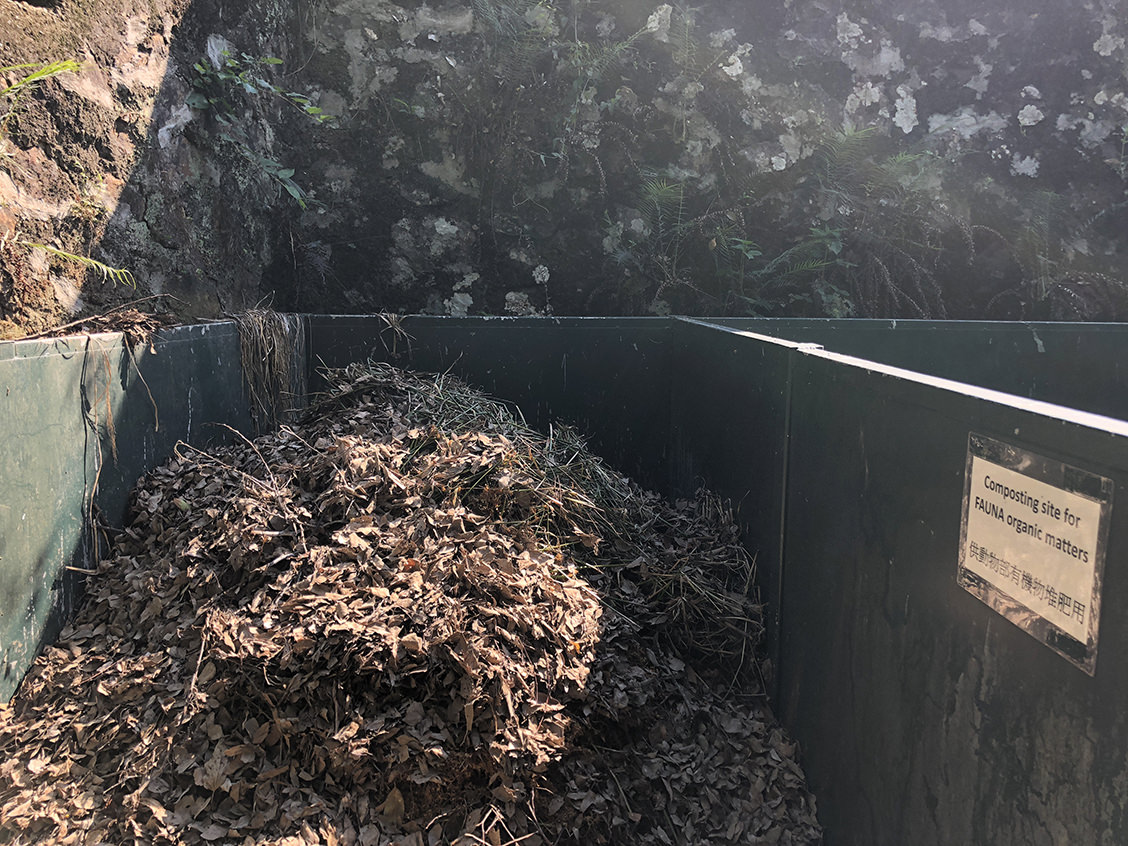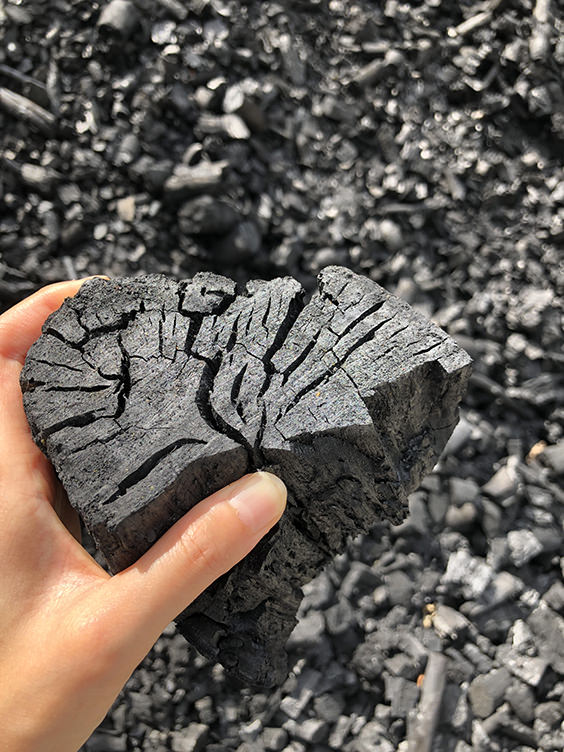

A vast amount of wood debris is generated as a by-product of our routine tree works. From a sustainability point of view, it is undesirable to dispose the debris in landfills and, moreover, the organic material is itself an invaluable resource. Constant removal of this organic material from the site would slowly but surely deplete KFBG’s soils.
Taking these factors into consideration, KFBG set up and implements its very own Wood Recycling Programme to recycle all wood debris generated on-site, including trunks, branches and leaf litter.
Compost
Leaves and small twigs that fall naturally onto our road network are harvested by our road sweeper and composted for several months. Composting is an aerobic decomposition process that breaks down bulky organic matter into a nutrient-rich humus. Applications of compost to soils provide a range of benefits, including:
- Increased organic content
- Improved soil texture, drainage and fertility
- Invigoration of the soil’s food web
- Creation of habitat for a range of beneficial life forms
Wood chip
Small branches and twigs generated from tree work are sorted and cut into wood chips using our wood chipper. Wood chip comprises leaves, bark and heartwood in a wide range of sizes, and can be used for mulching. Since the carbon-to-nitrogen ratio of wood chip is high, it decomposes relatively slowly. Nevertheless, when wood chip mulch decomposes to a point that it turns dark brown or black, it becomes one of the best materials for improving soil texture. In addition, wood chip mulch provides the following benefits to soil:
- Suppression of weeds
- Retention of soil moisture
- Moderation of soil temperature
- Reduction of soil compaction
Biochar

Not all wood debris is suitable for producing wood chip. Trunks, logs and large branches are not easily cut into pieces small enough to be processed by a wood chipper. Furthermore, it is not ideal to produce wood chips from rotten or diseased wood. Even so, these bulkier items are not wasted. Instead, KFBG invested in a biochar machine to convert them into biochar.
Through pyrolysis, a thermal decomposition process under low oxygen, woody biomass can be converted into biochar, a highly porous form of charcoal. Biochar can be used as a soil amendment that benefits the soil and plant growth in the following ways:
- Increased soil cation exchange capacity
- Improvement of soil nitrogen and phosphorus content
- Reduced nutrient run-off
- Improved soil water retention capacity
- Reduced soil acidity
- Creation of habitat for beneficial soil micro-organisms
Woodwork
High quality trunks generated by tree-felling operations are reserved for use in our on-site wood workshop. Our wood workshop provides a safe space for participants to gain practical skills in woodworking using hand tools to produce handcrafted wood products.

